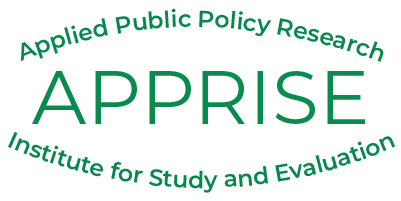APPRISE Impact Evaluations –
Market Transformation Programs
APPRISE conducted an evaluation of the Illinois Solar for All Program which brings photovoltaic power to low-income and environmental justice communities throughout Illinois and creates a long-term, low-income solar marketplace.
The ILSFA Program has four key components.
- Low-Income Distributed Generation: Single- and multi-family residential properties occupied by low-income households can receive incentives for new solar generation systems.
- Low-Income Community Solar: Low-income owners and renters can buy or lease a share of the solar system and receive credits on their utility bills for the energy produced by their share of the system.
- Incentives for Non-Profits and Public Facilities: Non-profit organizations and public entities within environmental justice communities or low-income communities can receive incentives for new solar generation systems.
- Low-Income Community Solar Pilot Projects: Projects with community partnerships and ownership will be awarded based on a competitive procurement approach.
The evaluation included analysis of community outreach, system cost and production, environmental and economic benefits, impacts on participants’ energy costs and burden, job training, and system reliability.
New Jersey Natural Gas operates energy efficiency programs that are complementary to the New Jersey Clean Energy Programs (NJCEP) as the SAVEGREEN project. The residential program provides grants or on-bill repayment plans to assist with the purchase and installation of furnaces/boilers and water heaters. The commercial program provides NJCEP Direct Install participants with a no-interest on-bill repayment plan for the value of the project not covered by the NJCEP incentive. APPRISE conducted an evaluation of the SAVEGREEN project to assess program management, analyze the incremental impact on energy efficiency activity, determine the extent to which the program influences residential customer implementation of whole house improvements, measure the program’s energy savings, and measure the non-energy impacts of the programs.
New Jersey Natural Gas’ (NJNG) SAVEGREEN Project offers rebates and financing incentives to fund energy efficiency projects for residential and commercial customers. APPRISE is on a contractor team to evaluate NJNG’s operations and ensure that the programs are meeting the energy savings reduction targets outlined in New Jersey’s 2018 Clean Energy Act. APPRISE is responsible for the Home Performance with Energy Star and Moderate Income Weatherization Process and Impact Evaluations. The research will include NJNG and trade ally interviews, participant surveys, and analysis of the natural gas and electric usage reduction that is attributed to these programs.
South Jersey Gas has been operating energy efficiency programs in coordination with the New Jersey Clean Energy Program (NJCEP) since 2009. The programs provide additional rebates and financing to customers who participate in the NJCEP residential and commercial and industrial programs. APPRISE conducted an evaluation of these programs to assess program design, implementation, and impacts. The research included interviews with program administrators, contractors, and participants; surveys with participants of three different programs; analysis of the impacts of the programs on natural gas usage; and assessment of the non-energy impacts of the programs.
